“Time” is a topic often explored by artists, although it doesn’t even hold a candle to “love.”
However, “time” is my topic, so my ears perk up when I catch a particularly poignant song about it.
Recently, I’ve begun to think a bit more about these songs as both they and I (gracefully) age . . .
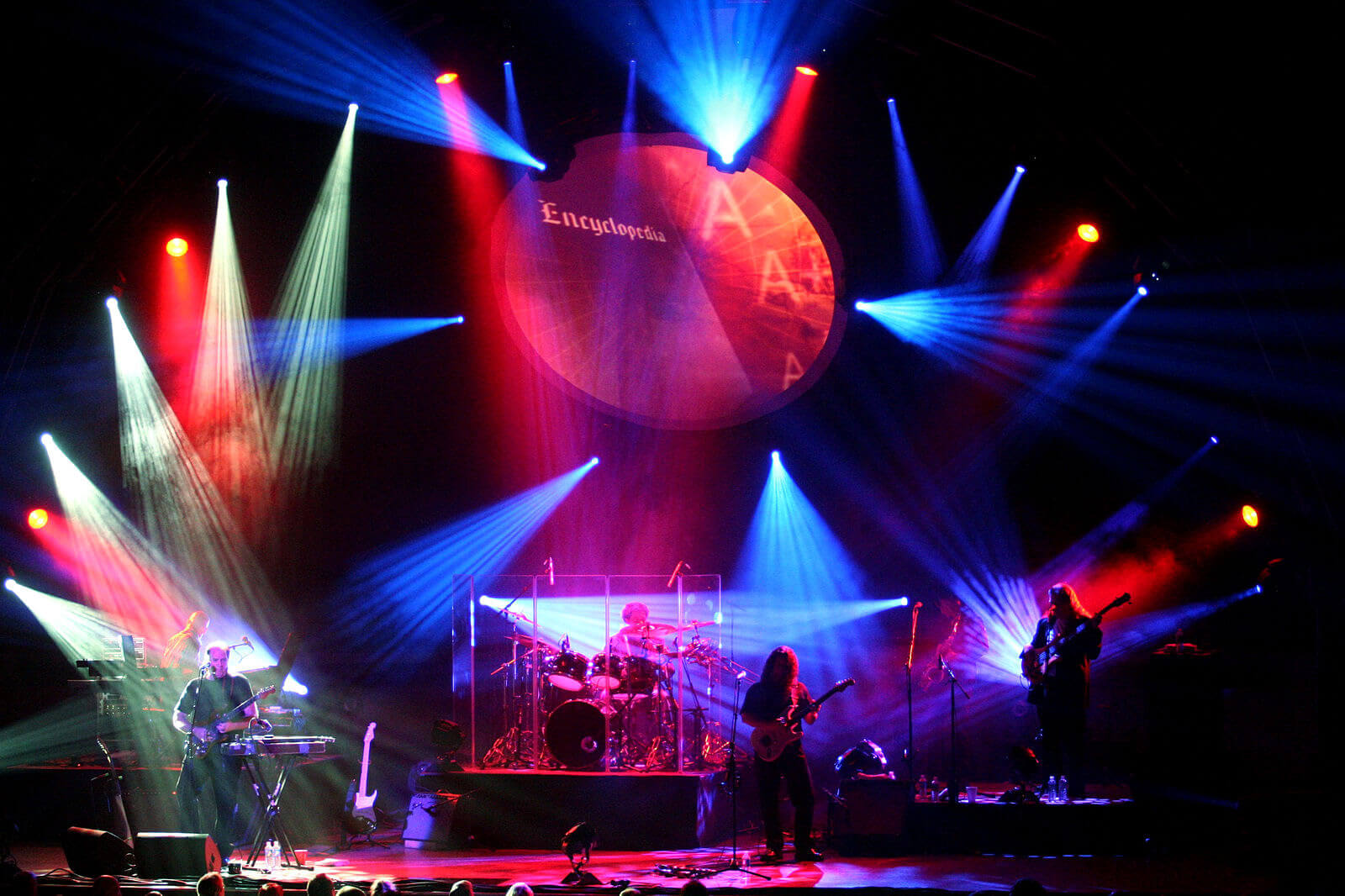
Pink Floyd (photo courtesy Craig O’Neal/Wikipedia commons)
“Child in Time” by Deep Purple
I bet you thought I would choose Deep Purple’s “Smoke on the Water” due to the opening line: “We all came down to Montreux . . . ,” which was written about the Montreux Jazz Festival. And, admittedly, I do get a few goosebumps every time I hear that, so vividly can I picture the scene singer Ian Gillan croons.
I didn’t really listen to “Child in Time” very closely, preferring Deep Purple’s classically heavier songs, until just a couple of years ago when I had the opportunity to interview one of rock music’s great drummers, Ian Paice. See my experience with him in Keeping Time With Deep Purple’s Ian Paice, Corum, And Paiste Cymbals.
According to Gillan, the song’s lyrics are about war and inhumanity. Nonetheless it remains one of the group’s most popular songs (although when I saw Deep Purple live in 2015 the band did not play it).
Released in 1970 on the Deep Purple in Rock album, this epic song runs for more than 10 minutes. I like the live versions you can find on YouTube much better than the studio version, though.
“Clocks” by Coldplay
Coldplay started as one of the best new indie bands around, and I immediately fell in love with “Clocks” upon hearing it – not just for its philosophical lyrics, but also for lead vocalist Chris Martin’s cascading, almost tessellating, and certainly catchy, piano riff.
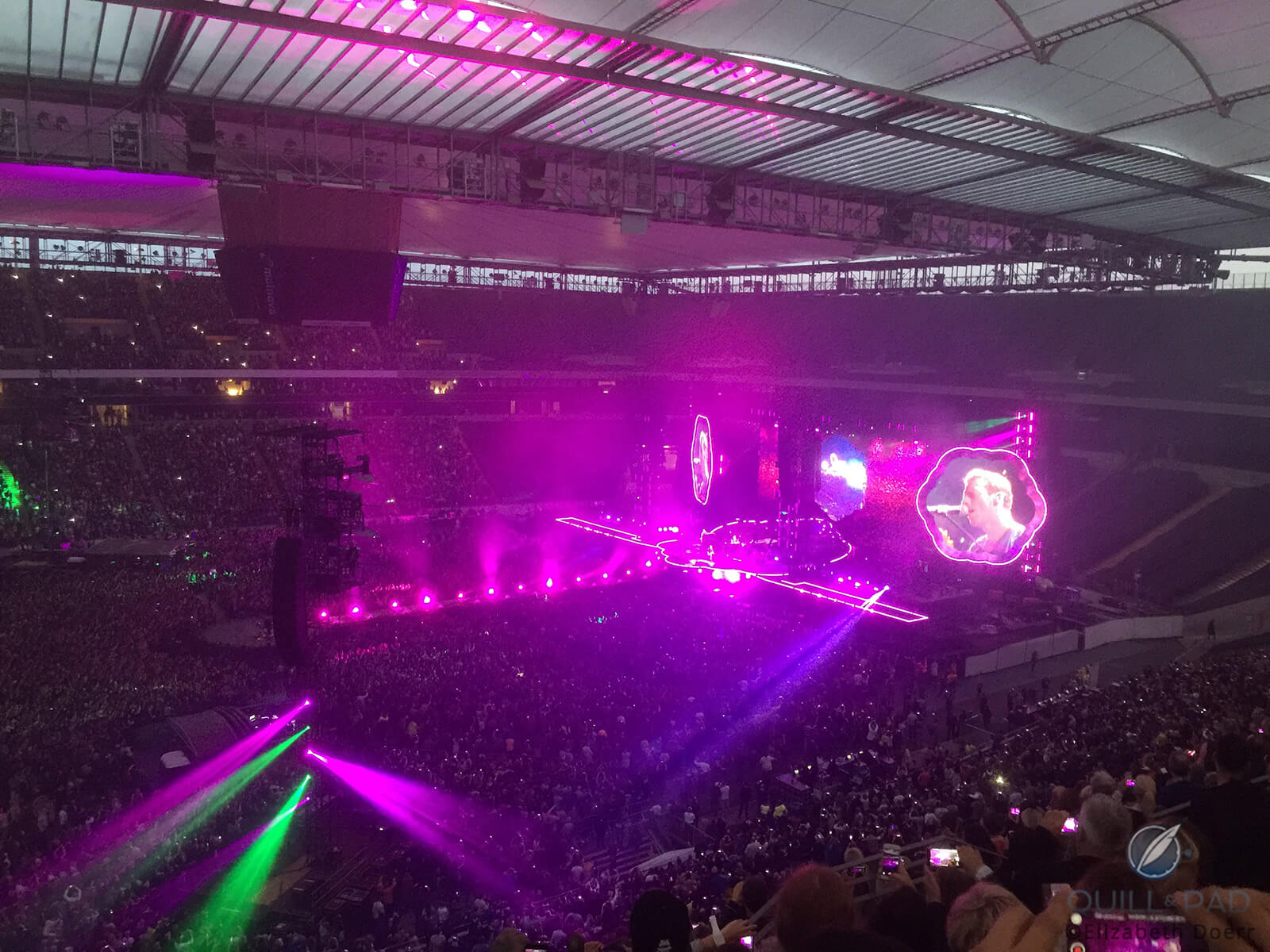
Chris Martin and Coldplay performing ‘Clocks’ in Frankfurt in 2017
If you’re a regular reader of Quill & Pad, you would know that I generally listen to harder music than Coldplay. I do have a good appreciation of most music genres even if there is one that I love above all others, though. It’s sort of like being able to appreciate a diver’s watch even if you don’t wear them (or don’t have the wrist to wear them).
Released in March 2003 on the band’s second album, A Rush of Blood to the Head, the critically acclaimed song caught not only my ear but that of the public at large, earning it top-ten placements on the UK, US, and other singles charts.
The lyrics, also written by Martin, are a bit cryptic, but I take away the sense that his “clocks” are referring to society’s obsession with time as well as time wasted in a conflicted relationship.
“Time” by Pink Floyd
Ah, Pink Floyd. The music of my youth, the meditative sounds accompanying my contemplations of the ongoing meaning of time – a time in which young people get to know themselves and the world around them. Pink Floyd seemed to be there every step of the way for me, more inactively than actively, though, as my music taste tended (and tends) to run to the more adrenaline-filled sort. But for contemplation and laid-back evenings with friends, this was always perfect accompaniment.
And what more ideal song than “Time” to contemplate the meaning of life to?
Released in 1973 as the fourth song on the gazillion-selling Dark Side of the Moon, bassist Roger Waters wrote the lyrics, which seem to offer a relatively pessimistic view on the passage of time. Interesting to me is also the lengthy introductory passage, which features chiming clocks and ringing alarms.
The Wikipedia entry nails the composition of this passage: “Each clock at the beginning of the song was recorded separately in an antiques store. These clock sounds are followed by a two-minute passage dominated by Nick Mason‘s drum solo, with rototoms and backgrounded by a tick-tock sound created by Roger Waters picking two muted strings on his bass. With David Gilmour singing lead on the verses, Richard Wright singing lead on the bridges, and with female singers and Gilmour providing backup vocals, the song’s lyrics deal with Rogers’ realization that life was not about preparing yourself for what happens next, but about grabbing control of your own destiny.”
Pink Floyd enthusiasts will also know that it was Alan Parsons who recorded the clocks at the antiques store, an interesting aside.
“Does Anybody Really Know What Time It Is?” by Chicago
In my youth, Chicago asked a musical question that seriously foreshadowed my life’s trajectory: no, is the answer I found. Most people really don’t know what time it is because time, as we know it, it is a human construct to explain something we really don’t understand well.
And I didn’t either. But one day after starting to work with watches, I found a further clue: it was when I understood what the equation of time was and looked more into the fact that we set our watches using civil mean time, even if the sun is keeping time for us in a slightly different way.

Martin Braun’s Eos Boreas displays the equation of time as well as the times of sunrise and sunset
That started a train of philosophical thought that brought me around to the idea that time as we understand it isn’t really that. But this system works for us, so in order not to explode our non-physicist brains (except for Joshua – that superbrain gets it all), let’s just stick with mean time and solar time for now . . .
And, in any case, the equation of time is not what Chicago’s Robert Lamm was asking about here. What he refers to is much of what “Clocks” expresses: the need for humanity to keep itself busy, lose itself in the details and strict regimens of a productive life, losing valuable human time in the process.
Released as a single in 1970, this song was included on Chicago’s debut album Chicago Transit Authority.
“Time in a Bottle” by Jim Croce
I found this song when I was about seven years old. My mother had kept a little collection of vinyl 78 singles from her teenage years, most of which came from the 1950s (and included “Rock Around the Clock,” which I think I wore out by playing so much, followed by “One-Eyed, One-Horned Flying Purple People Eater,” whose lyrics I found hilarious as a child).
But strangely there was also a 78 of Jim Croce’s famous single from 1973 among them – which checks out with my age. Either she or my dad must have bought it the year I picked it out of the pile and began earnestly listening to records.
Its haunting melody, stark musicality (which includes a harpsichord!), and meaningful lyrics immediately grabbed my attention even though I was only at the start of my lifelong love affair with music. I’m pretty sure that’s why the memory of my early listenings to it remain so vivid – almost as vivid as the day Elvis died, though that was about four years later.
This chart-topping song appeared on Croce’s 1972 debut album, You Don’t Mess Around with Jim; he had written the lyrics after his wife told him she was pregnant in 1970. Croce’s burgeoning music career was tragically cut short in 1973 when the chartered Beechcraft he was on crashed during takeoff, killing the 30-year-old singer-songwriter, members of his team, and everyone else on board.
This song’s memorable lyrics deal with mortality and the passage of time, with the main message seeming to be carpe diem. The sadness expressed in them and his recorded voice have always left me wondering if he somehow divined his own fate. Maybe that was just a projection.
And by popular demand
* This article was first published on March 19, 2020 at 5 Perennially Treasured Rock Songs About Time (With Videos).
You may also enjoy:
Keeping Time With Deep Purple’s Ian Paice, Corum, And Paiste Cymbals
The (Not So) Complete Story Of Rock And Roll And Watches: Ramp The Volume Up To 11!
Drum Roll, Please: Drummers And Watches, Two Natural Timekeepers
Kiss Drummer And Passionate Watch Collector Eric Singer’s Baselworld 2018 Top 10
Leave a Reply
Want to join the discussion?Feel free to contribute!


















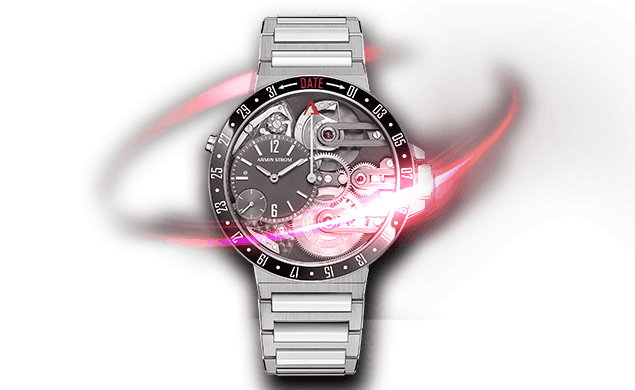
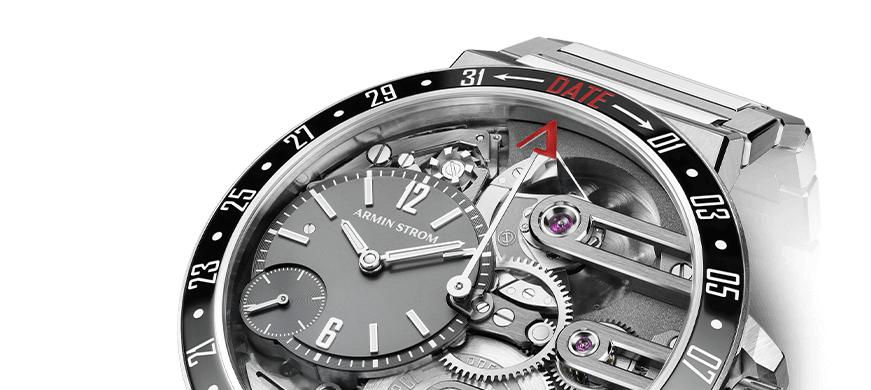
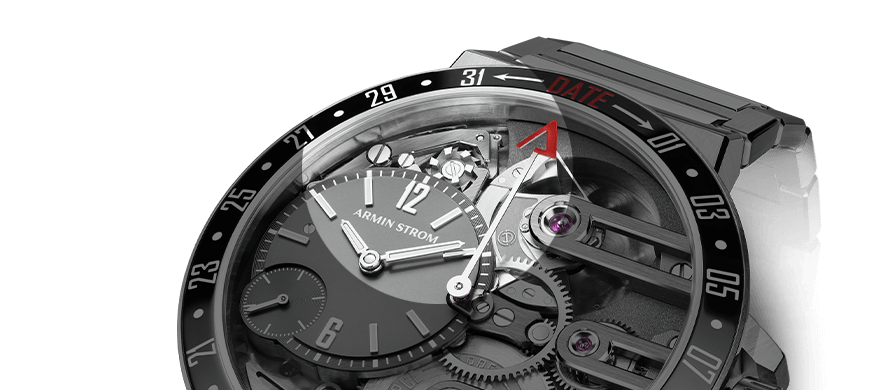





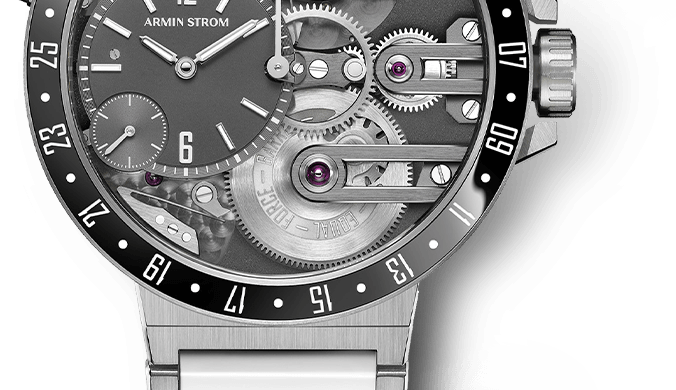
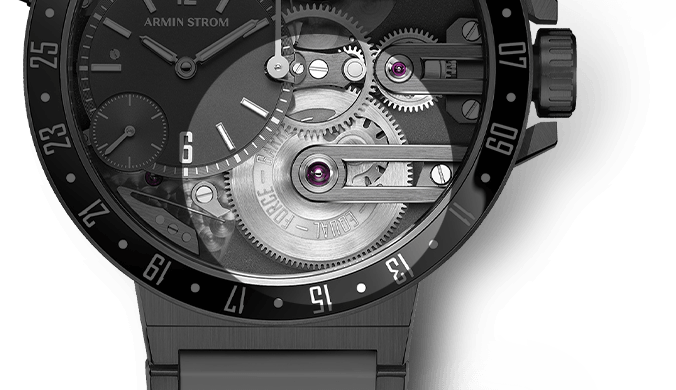









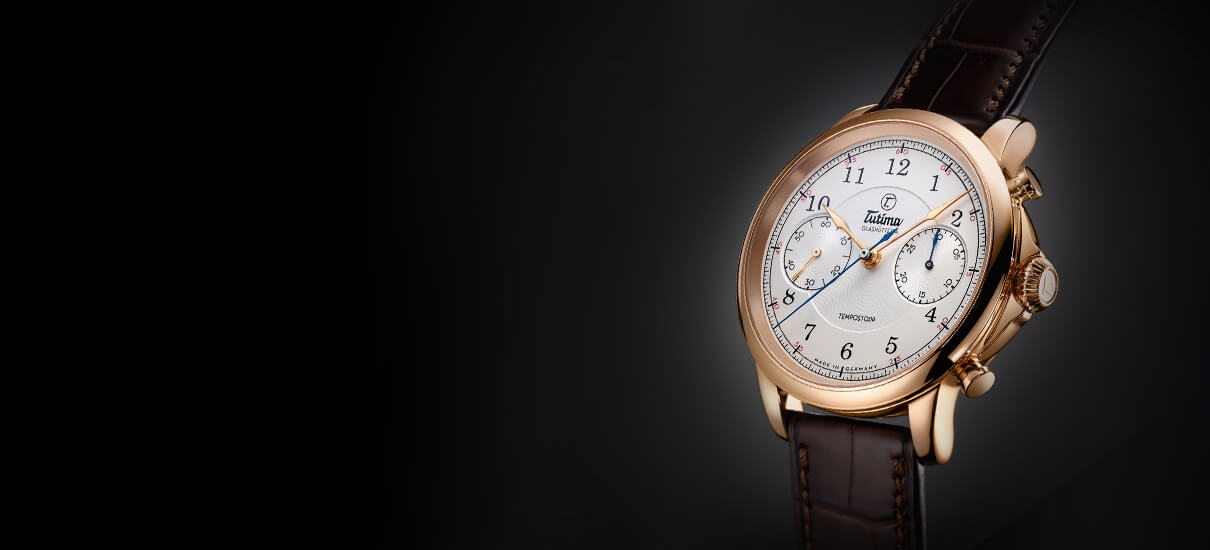



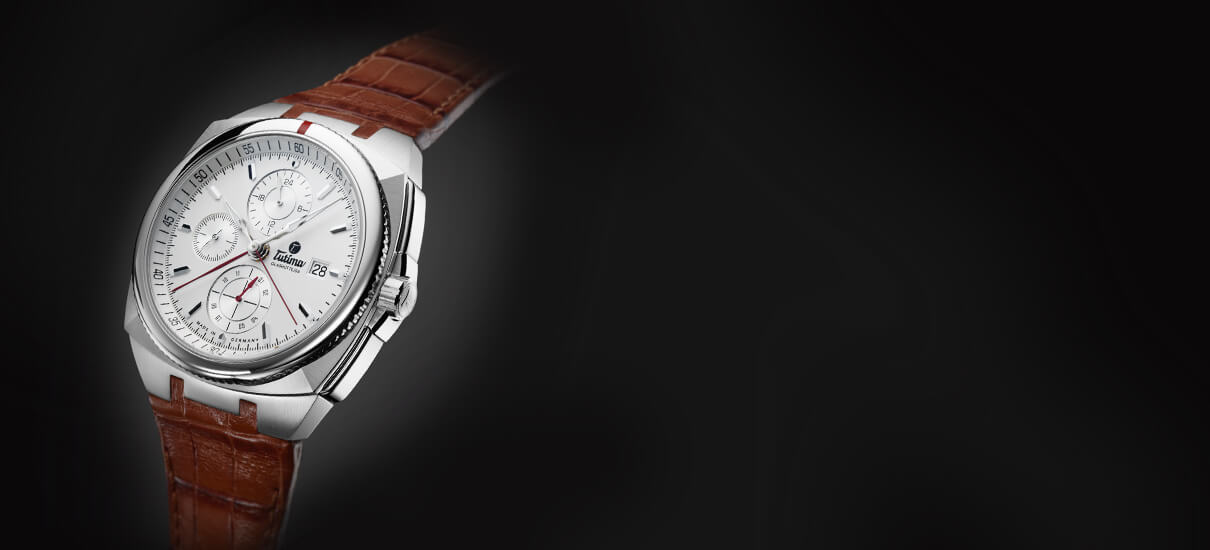

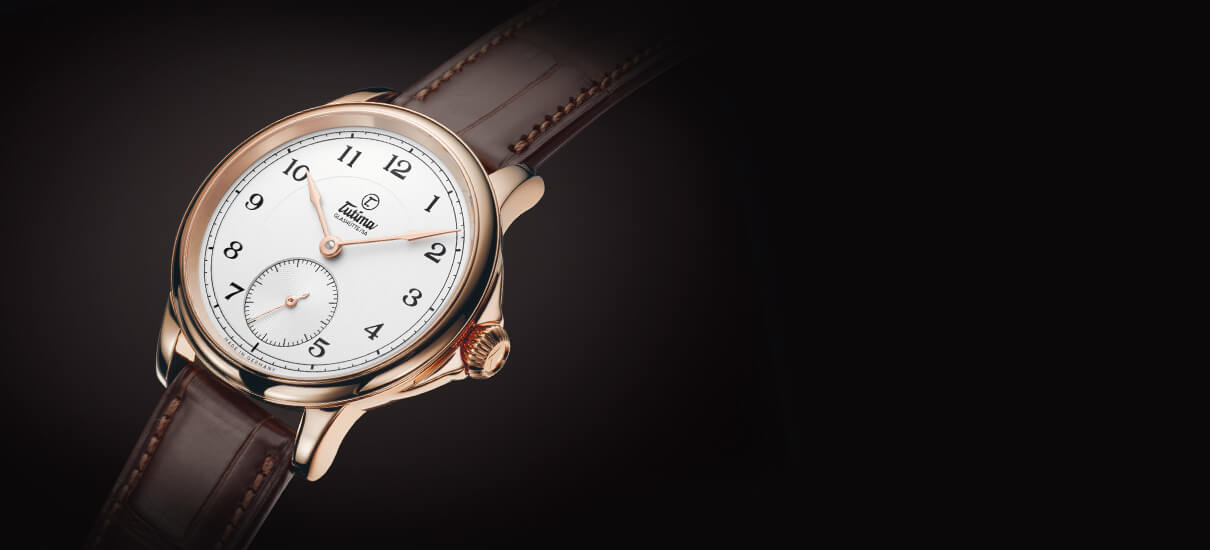



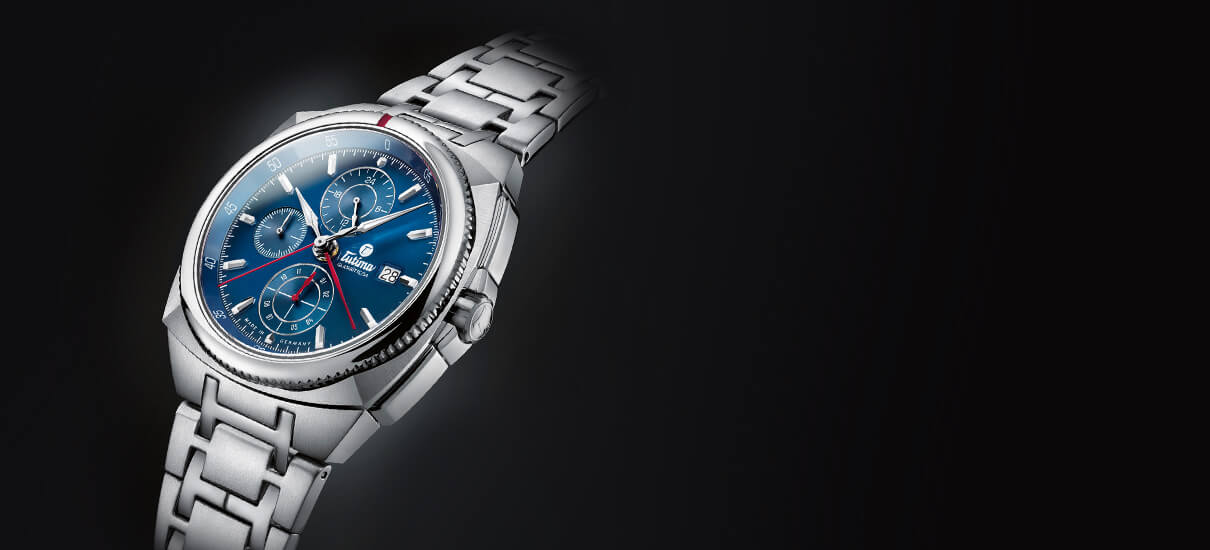

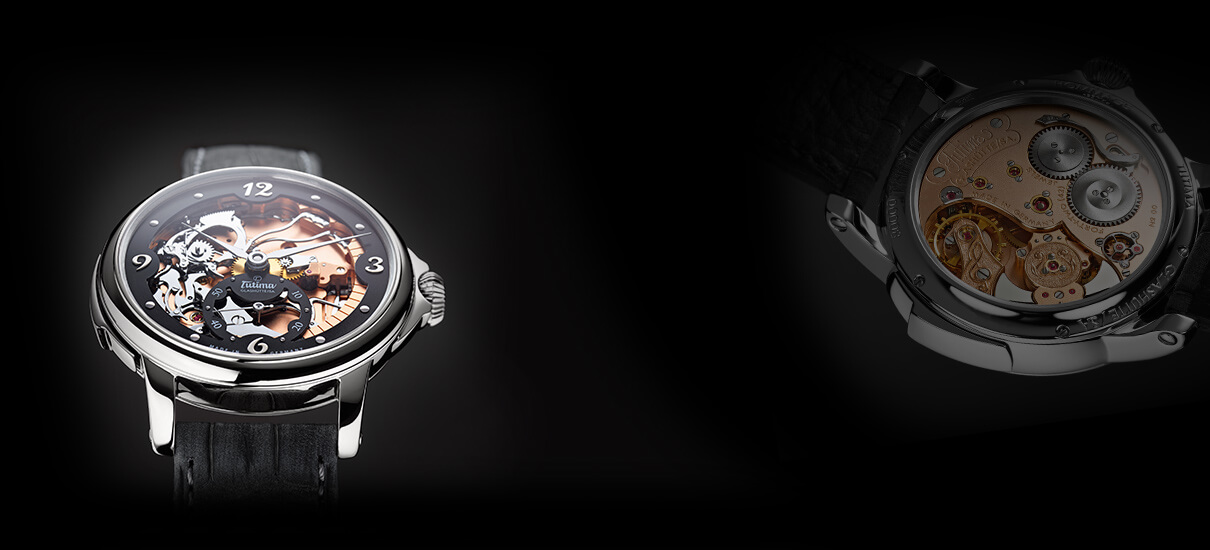



Don’t forget David Bowie, Elizabeth, surely the first rock musician to posit that time is actually relativistic and not rigid (“…flexes like a whore” was the term he used, if I remember correctly).
Lol, Colin!
You forgot Time Is On My Side by the greatest rock band of all time, The Rolling Stones.